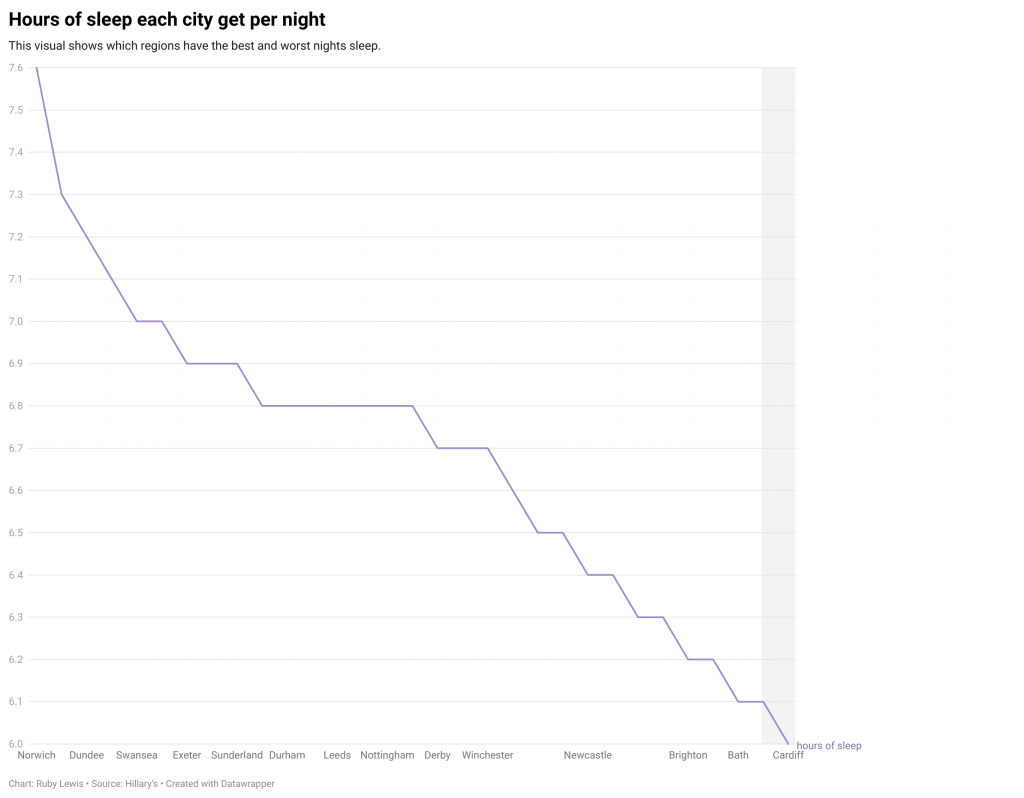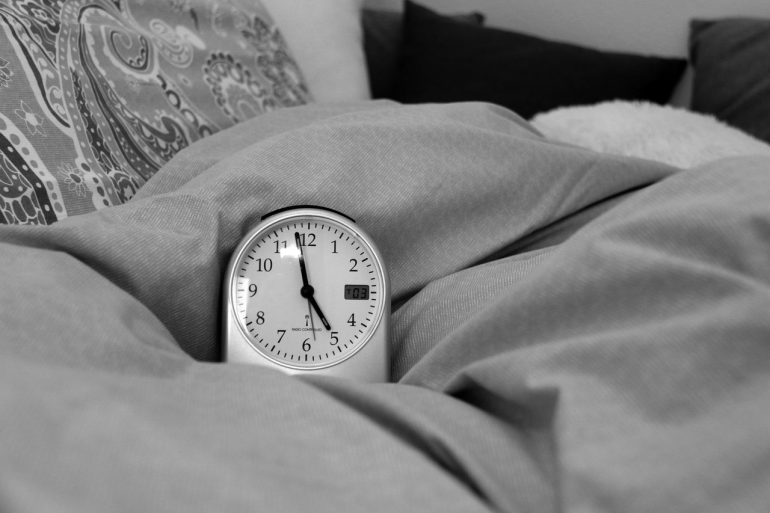The average person in Cardiff is only getting six hours a night, making it one of the most sleep deprived cities in the UK.
Research revealed almost two thirds of people in England and Wales regularly fail to get the bare minimum of seven hours of sleep every night, as recommended by the NHS.
People in Cardiff average only 6 hours of sleep a night, according to the study by manufacturer Dreams.

More than 70% of people who answered the sleep survey (2022) have less than the recommended seven hours of sleep each night, while nearly half describe the quality of their sleep as “poor”.
Organisation World Sleep Day which consists of sleep health experts and scientists aims to raise awareness of why people are not getting a good nights sleep. They say are phones are the “biggest enemy of a good nights sleep”.
Since 2016, use of screens such as phones and tablets in bed has increased by 47%,. The number of hours people watch TV in bed has also increased by 92%.
Unsurprisingly, social media effects peoples’ sleep, as the survey found 88% of people scroll different platforms in the hour before bed. Sleep Scientist Anushree Tandon says that a new US study found that “fear of missing out” (FoMo)- encourages people to use social media late into the night. Notifications and buzzes also cause sleep disturbances and are bad for sleep health.
The research also shows high blood pressure, heart disease, and diabetes can be linked to lack of sleep.
So how can people improve sleep?
The NHS recommend following these tips.
- Remove electronic devices, such as TVs, computers, and smart phones, from the bedroom
- Be consistent. Go to bed at the same time each night and get up at the same time each morning, including on the weekends
- Make sure your bedroom is quiet, dark, relaxing, and at a comfortable temperature
- Avoid large meals, caffeine, and alcohol before bedtime
- Get some exercise. Being physically active during the day can help you fall asleep more easily at night.

